Jeep Wrangler vs Land Rover Range Rover - Differences and prices compared
Compare performance (272 HP vs 615 HP), boot space and price (60800 £ vs 122700 £) at a glance. Find out which car is the better choice for you – Jeep Wrangler or Land Rover Range Rover?
Costs and Efficiency:
Price and efficiency are key factors when choosing a car – and this is often where the real differences emerge.
Jeep Wrangler has a decisively advantage in terms of price – it starts at 60800 £, while the Land Rover Range Rover costs 122700 £. That’s a price difference of around 61971 £.
Fuel consumption also shows a difference: Land Rover Range Rover manages with 2.70 L and is therefore significantly more efficient than the Jeep Wrangler with 11.10 L. The difference is about 8.40 L per 100 km.
Engine and Performance:
Under the bonnet, it becomes clear which model is tuned for sportiness and which one takes the lead when you hit the accelerator.
When it comes to engine power, the Land Rover Range Rover has a decisively edge – offering 615 HP compared to 272 HP. That’s roughly 343 HP more horsepower.
In acceleration from 0 to 100 km/h, the Land Rover Range Rover is significantly quicker – completing the sprint in 4.50 s, while the Jeep Wrangler takes 7.60 s. That’s about 3.10 s faster.
There’s also a difference in torque: Land Rover Range Rover pulls decisively stronger with 800 Nm compared to 400 Nm. That’s about 400 Nm difference.
Space and Everyday Use:
Cabin size, boot volume and payload all play a role in everyday practicality. Here, comfort and flexibility make the difference.
Seats: Land Rover Range Rover offers clearly perceptible more seating capacity – 7 vs 5.
In curb weight, Jeep Wrangler is noticeable lighter – 1938 kg compared to 2504 kg. The difference is around 566 kg.
In terms of boot space, the Land Rover Range Rover offers clearly perceptible more room – 818 L compared to 533 L. That’s a difference of about 285 L.
When it comes to payload, Land Rover Range Rover clearly perceptible takes the win – 846 kg compared to 556 kg. That’s a difference of about 290 kg.
Who wins the race?
The Land Rover Range Rover proves to be is largely superior and therefore becomes our DriveDuel Champion!
Land Rover Range Rover is the better all-rounder in this comparison.
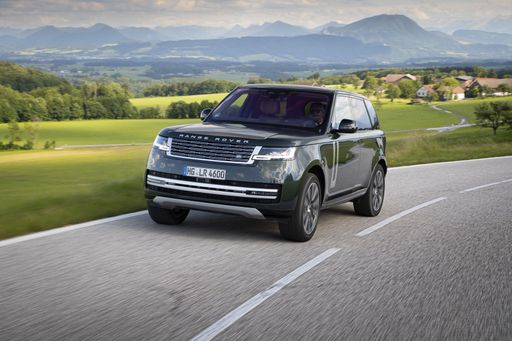
Land Rover Range Rover
Costs and Consumption
View detailed analysis
Engine and Performance
View detailed analysis
Dimensions and Body
View detailed analysis
Jeep Wrangler
The Jeep Wrangler wears its go-anywhere attitude on its boxy shoulders, with exposed hinges, a removable top and a look that practically dares the tarmac to get in its way. Inside it’s simple and tough-minded, ready to swallow muddy boots and weekend gear, so if you crave honest off-road thrills rather than refined suburbia polish, the Wrangler is your unapologetic partner in adventure.
details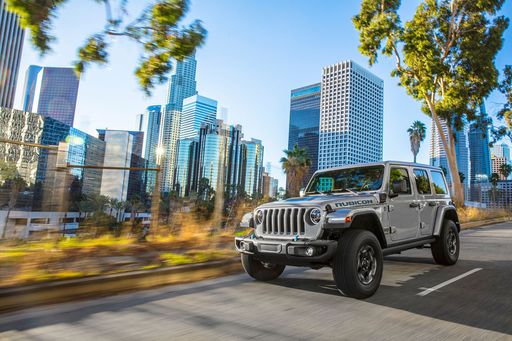
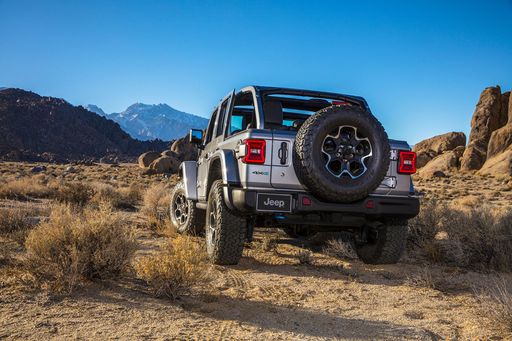
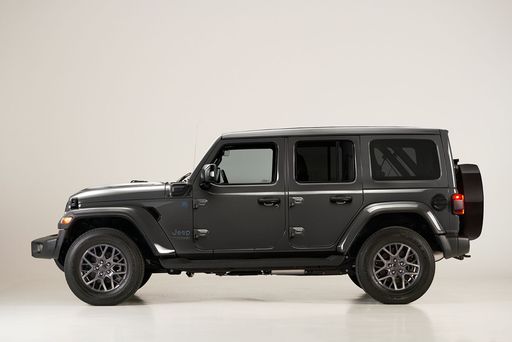
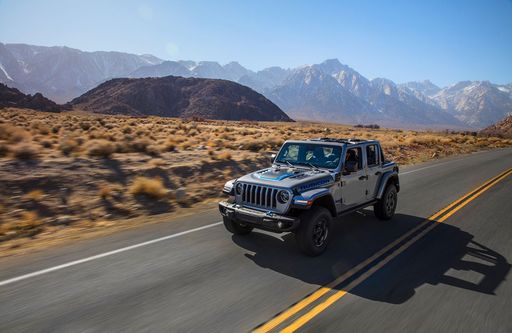
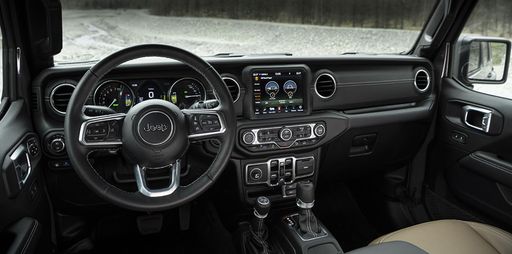
Land Rover Range Rover
The Range Rover wraps unabashed luxury and genuine off-road capability into a silhouette that still manages to look effortlessly elegant whether parked outside a city hotel or splashing through a muddy trail. Inside, it’s a cocoon of soft leathers, refined materials and serene ride quality that makes long journeys feel like private-jet comfort — ideal for buyers who want a plush cruiser that can also go where lesser SUVs won’t.
details
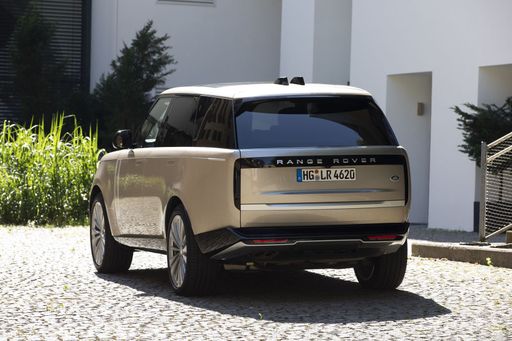
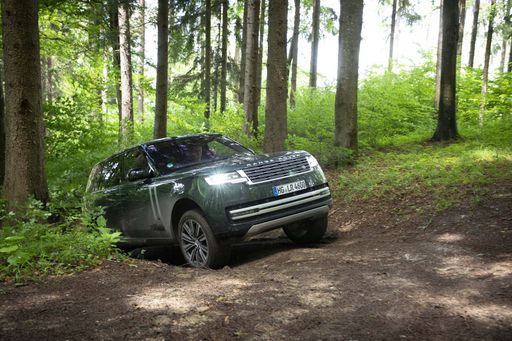


|

|
|
|
|
Costs and Consumption |
|
|---|---|
|
Price
60800 - 62500 £
|
Price
122700 - 244700 £
|
|
Consumption L/100km
11.1 - 11.9 L
|
Consumption L/100km
2.7 - 11.7 L
|
|
Consumption kWh/100km
-
|
Consumption kWh/100km
-
|
|
Electric Range
-
|
Electric Range
116 - 117 km
|
|
Battery Capacity
-
|
Battery Capacity
31.80 kWh
|
|
co2
250 - 269 g/km
|
co2
62 - 265 g/km
|
|
Fuel tank capacity
-
|
Fuel tank capacity
71 - 90 L
|
Dimensions and Body |
|
|---|---|
|
Body Type
Off-Roader
|
Body Type
Off-Roader
|
|
Seats
5
|
Seats
5 - 7
|
|
Doors
-
|
Doors
5
|
|
Curb weight
1938 - 2028 kg
|
Curb weight
2504 - 2810 kg
|
|
Trunk capacity
533 L
|
Trunk capacity
212 - 818 L
|
|
Length
-
|
Length
5052 - 5258 mm
|
|
Width
1894 mm
|
Width
2047 mm
|
|
Height
-
|
Height
1870 mm
|
|
Max trunk capacity
-
|
Max trunk capacity
1841 - 2176 L
|
|
Payload
546 - 556 kg
|
Payload
589 - 846 kg
|
Engine and Performance |
|
|---|---|
|
Engine Type
Petrol
|
Engine Type
Plugin Hybrid, Petrol MHEV, Diesel MHEV
|
|
Transmission
Automatic
|
Transmission
Automatic
|
|
Transmission Detail
Automatic Gearbox
|
Transmission Detail
Automatic Gearbox
|
|
Drive Type
All-Wheel Drive
|
Drive Type
All-Wheel Drive
|
|
Power HP
272 HP
|
Power HP
300 - 615 HP
|
|
Acceleration 0-100km/h
7.60 s
|
Acceleration 0-100km/h
4.5 - 6.6 s
|
|
Max Speed
-
|
Max Speed
218 - 261 km/h
|
|
Torque
400 Nm
|
Torque
650 - 800 Nm
|
|
Number of Cylinders
4
|
Number of Cylinders
6 - 8
|
|
Power kW
200 kW
|
Power kW
221 - 452 kW
|
|
Engine capacity
1995 cm3
|
Engine capacity
2997 - 4395 cm3
|
General |
|
|---|---|
|
Model Year
2024
|
Model Year
2025
|
|
CO2 Efficiency Class
G
|
CO2 Efficiency Class
B, G
|
|
Brand
Jeep
|
Brand
Land Rover
|
What drive types are available for the Jeep Wrangler?
The Jeep Wrangler is offered with All-Wheel Drive.
The prices and data displayed are estimates based on German list prices and may vary by country. This information is not legally binding.




